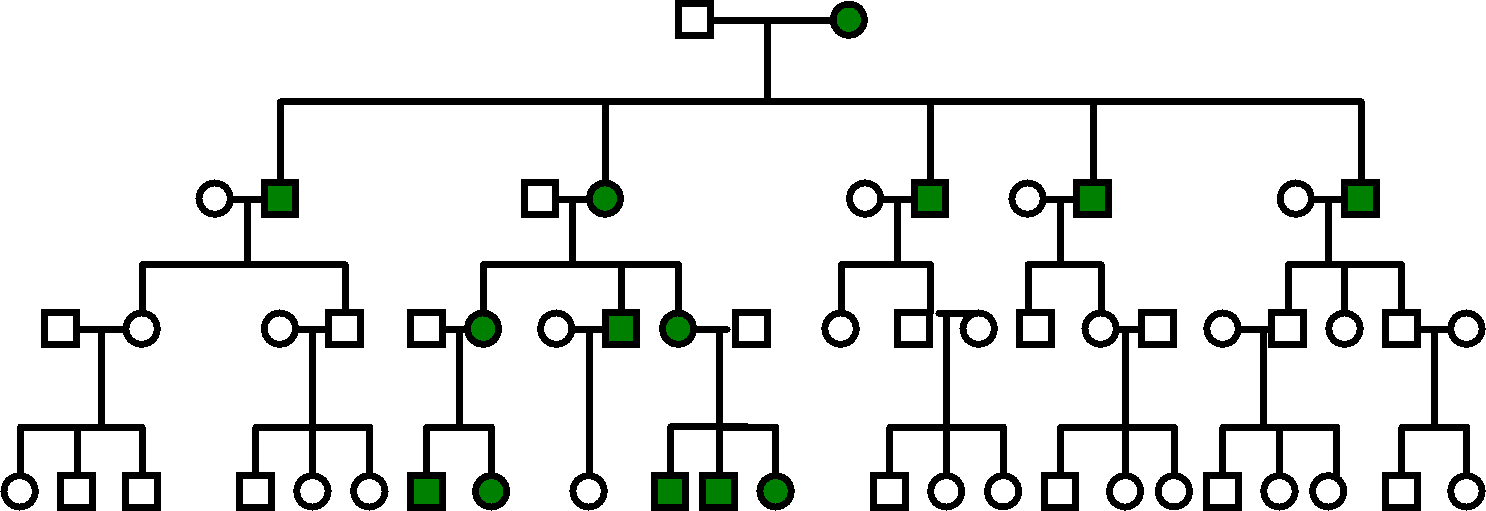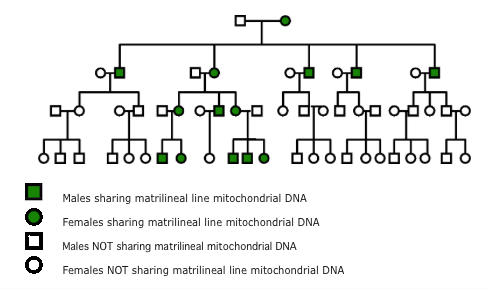The Path of Mitochondrial DNA Through Four Generations







For a number of years, mitochondrial DNA testing was the only testing option for women. (Mitochondrial DNA testing is actually an option for women and men.) A mitochondrial DNA test will give information about an individual's direct maternal line. However, mitochondrial DNA involves SNP testing. SNP mutations occur much less frequently than the STR mutations analyzed for Y DNA tests. Consequently, mitochondrial DNA testing results are not as easily applicable to solving more recent genealogical puzzles.
All of an individual’s mitochondria are derived from his/her mother. Although the sperm cell tail is packed with mitochondria to power its long journey to the egg cell, the tail and mitochondria drop off of the sperm at fertilization and do not enter the egg cell. Sperm mitochondria that do happen to make it into the egg are actively destroyed as soon as fertilization is complete. Consequently, all of the mitochondria in the fertilized egg come from an individual’s mother. [A 2002 publication by Marianne Schwartz and John Vissing from the University Hospital Rigshospitalet in Copenhagen reports an instance of a man whose muscle cell mitochondrial DNA matched that of his father rather than his mother. This, however, is quite rare. (New England Journal of Medicine, vol 347, pp 576-580)]
As the fertilized egg divides repeatedly to produce the trillions of cells of the human body, the mitochondria also divide and pass down their bit of maternal DNA to every cell in the body of the offspring. A cell may contain thousands of mitochondria and each mitochondrion contains as many as one hundred copies of mitochondrial DNA. That means that each cell may contain hundreds of thousands of copies of mitochondrial DNA.
Since mitochondrial DNA is handed down from a mother to all of her offspring be they male or female, testing your mother’s mitochondrial DNA will not be significantly different from testing your own or your siblings or, if you are a female, your own offspring's DNA.. On the other hand, testing your father’s mitochondrial DNA may shed some dim light on your paternal grandmother’s ancient origins. If you are male, you will share no mitochondrial DNA with your offspring or your father's line.